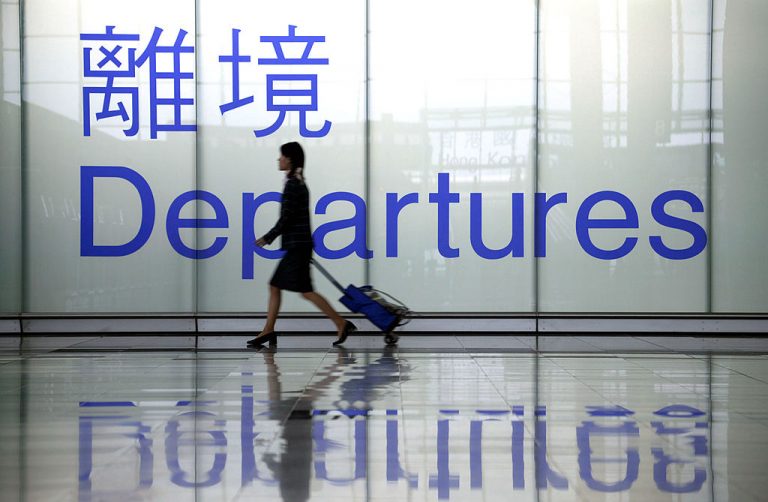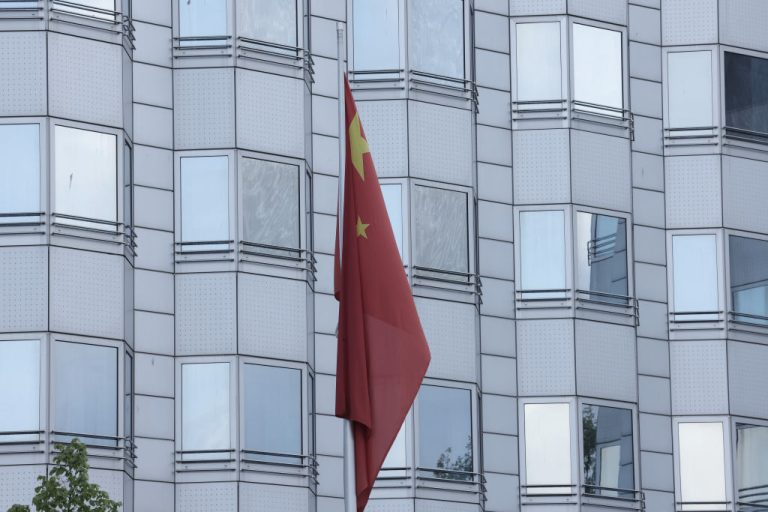American companies are gearing up for a mass exodus out of Hong Kong after the Chinese Communist Party took full control over the formerly democratic city last year, shows a recent survey conducted by the American Chamber of Commerce in Hong Kong.
The study revealed that more than 40 percent of the 325 members surveyed between May 5 and May 9 say they intend to leave the city, with 62 percent of respondents expounding their decision is based on rising concerns over the communist China-imposed National Security Law.
One respondent wrote in comments published in the survey, “Previously, I never had a worry about what I said or wrote when I was in Hong Kong,” while another mentioned an “increase in anti-foreigner sentiment in the media and government statements” as reasons for wanting to leave.
Another Chamber member surveyed stated their reason as “the rise of illiberal values as Hong Kong becomes more closely integrated into China.”
A propaganda spokesperson for the Beijing-backed Hong Kong government tried to feign the NSL was required to restore stability after Hong Kong’s 2019 massive anti-CCP protests and claimed the implementation of communism in the city would actually increase investor confidence in comments to Bloomberg.
Success
You are now signed up for our newsletter
Success
Check your email to complete sign up
By contrast, another surveyed member said the NSL “is destroying Hong Kong’s international appeal.”
Besides the installation of Beijing’s security law, other reasons for the possibility of an en masse exit cited by respondents are Hong Kong’s handling of the pandemic and the rising cost of living.
36 percent also cited major concerns over the quality of Hong Kong’s education system due to influences the NSL will have on learning, while 49 percent of survey takers said Hong Kong Chief Executive Carrie Lam’s quarantine policies had made travel difficult, forcing them to consider leaving.
In terms of timeframe, many members said they weren’t yet ready to rush to the exit. 3 percent said they planned to leave immediately, 10 percent said they would leave by the end of summer, 15 percent before 2022, and 48 percent said they planned to go within three to five years.
Chamber President Tara Joseph told AFP, “While people share their love for living in this dynamic city, they also reveal growing underlying tensions and nagging fears.”
The Chamber conducted a similar survey last August, revealing that 39 percent of the 154 firms surveyed had plans to transfer capital, assets, or operations out of Hong Kong due to fears over the NSL.
According to Bloomberg, Taipei, and Thailand, including Tokyo, were listed as probable destinations for fleeing businesses, with Singapore cited as the most popular city of choice.
But packing up is neither easy nor cheap, and few major American multinationals have shown signs of uprooting their businesses on a large scale.
More than 100 people arrested so far have been detained for dissenting against the Communist Party’s official narrative, dozens of which have been pro-democracy politicians and activists. Bail is usually denied by the increasingly authoritarian legal system, while those convicted can face penalties as harsh as life sentences.
Hong Kong’s Beijing-loyal police chief Chris Tang warned on Tuesday that publishing so-called “fake news” would violate the CCP’s law.
“As long as you broke the law, we will find evidence to prove that you committed a crime. You can only wait at home for us to arrest you. But you don’t have to worry at all if you didn’t break the law,” claimed Tang.
Although the 2019 protests have ended, concerns about whether the former British colony can proceed as an open, liberal city and preserve its autonomous judiciary under the CCP’s growing insistence on domination remains to be seen.







